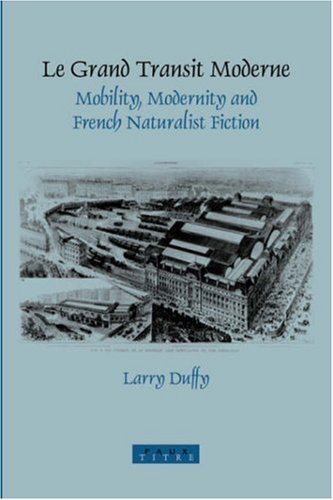

Most ebook files are in PDF format, so you can easily read them using various software such as Foxit Reader or directly on the Google Chrome browser.
Some ebook files are released by publishers in other formats such as .awz, .mobi, .epub, .fb2, etc. You may need to install specific software to read these formats on mobile/PC, such as Calibre.
Please read the tutorial at this link: https://ebookbell.com/faq
We offer FREE conversion to the popular formats you request; however, this may take some time. Therefore, right after payment, please email us, and we will try to provide the service as quickly as possible.
For some exceptional file formats or broken links (if any), please refrain from opening any disputes. Instead, email us first, and we will try to assist within a maximum of 6 hours.
EbookBell Team

4.0
36 reviewsContextualizing the study's critical focus by way of a brief historical outline of the development of infrastructural networks in nineteenth-century France and a delineation of the problematical parameters of French naturalism, Duffy examines literary representations of new forms and conceptualisations of movement, principally in works by Flaubert, Zola, and Maupassant. Other authors discussed include the Goncourt brothers, Huysmans, Baudelaire and Claretie. Literary texts are examined alongside a range of related scientific, sociological and medical texts. What emerges strikingly from consideration of these works and the discourses they – often subversively – incorporate, is that movement, central to nineteenth-century industrial society's view of itself, is frequently perceived and presented self-deludingly in the idealised metaphorical terms of smoothly-functioning systems of perpetual motion, and that naturalist fiction, by exploiting to their full potential the same metaphors in its narratives, challenges this ‘anti-entropic' vision.
Contents
Acknowledgments Author's Note Introduction: ‘Le Grand Transit Moderne' Chapter 1 A Complex Kind of Training : L'?ducation sentimentale, Modernity, and the Changing Phenomenology of Motion Chapter 2 An Evolutionary Naturalist Intertext: The Traffic Jam as Exemplary Taxonomic Motif Chapter 3 Haussmannization, Circulation and the Ideal City of Au Bonheur des Dames Chapter 4 Convulsions, D?traquement and the Circulus: Zola's Dehystericisation of Prostitution Chapter 5 Beyond the Pressure Principle: Bestialisation, Anthropomorphism and the ‘Thermodynamic' Death Instinct in Naturalist Fiction Chapter 6 Maupassant, Doxa and the Banalisation of Modern Travel Conclusion: ‘Ce Parasite Suppl?mentaire' Bibliography Index